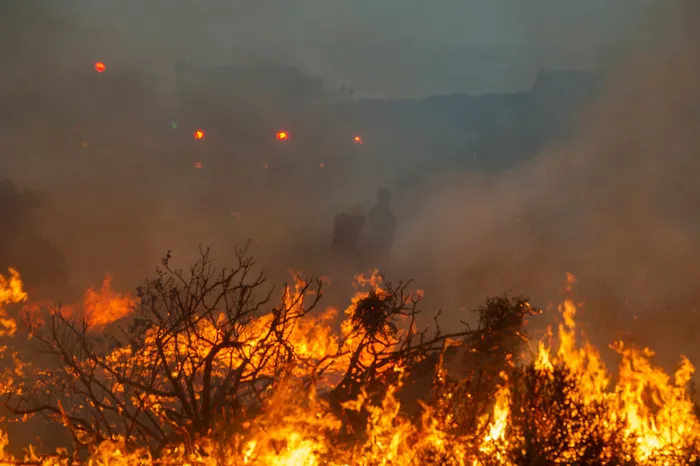CapeNature reports alarming rise in wildfires amid Western Cape's fire season

CapeNature managed to contain 54% of the fires to less than 10 hectares and 21% to under 100 hectares. File Picture: Armand Hough / Independent Newspapers
Cape Town - As the Western Cape enters its most precarious fire season, CapeNature has reported a staggering 89 wildfires between April 2023 and March 2024, scorching roughly 73,671 hectares.
Notably, 22 762 hectares of this were within areas managed by the entity itself, highlighting the ongoing battle against wildfires in the region. The alarming statistics reveal a steady increase in the number of wildfires in recent years. CapeNature responded to 73 fires in 2022/23 and 87 in the preceding year.
However, amidst these concerning figures, there is a silver lining. CapeNature managed to contain 54% of the fires to less than 10 hectares and 21% to under 100 hectares. These impressive results were primarily due to the adoption of the Large-Scale Rapid Initial Attack (LASRIA) approach and strong collaborative efforts across various institutions.
Dr Ashley Naidoo, CEO of CapeNature, emphasised the partnership that fuels effective wildfire management.
“Not only are CapeNature's partners critical to contain wildfires, but so are the public that reports fires immediately to the correct authorities. When the public alerts the relevant authorities to smoke or fire quickly, a response can be activated before it becomes a larger incident, increasing the chances of success and saving money, time, infrastructure, and potentially even lives,” he said.
The LASRIA principles heavily depend on robust partnerships; in 2023/24, CapeNature maintained 12 formal memoranda of understanding with various stakeholders such as provincial disaster management agencies, local municipalities, fire protection associations, and volunteer services.
This extensive network allowed for quicker responses armed with maximum resources, effectively limiting extensive fire damage that can stretch over several days.

CapeNature said despite the successful containment efforts, human activity remains the leading cause of wildfires. In the current fire season, 55% of ignitions were attributed to people, whether through negligence or intentional actions – such as braai and warming fires or fireworks.
“Furthermore, 12% resulted from mechanical operations, and natural fires accounted for 14%. Alarmingly, with environmental conditions becoming more conducive to fire, the public's role in fire safety is more critical than ever.
“As South Africa heads into the warmer, drier months, it is vital for residents to exercise vigilance. The Cape typically witnesses the majority of wildfires during this season, with an estimated 83 fires occurring between October 2023 and May 2024.”
The entity said public education on fire safety measures is crucial; activities such as staying clear of open fires near roads, utilising designated braai spots, and always supervising any flames are pivotal for preventing fires from spiralling out of control.
“The Cape Floral Region, famed for its rich biodiversity and endemic species, encapsulates the delicate balance between nature's needs and fire risks. While Fynbos plants require fire to release seeds and propagate, the escalating frequency of fires could jeopardise their existence. Continuous and careful management is needed to ensure that these unique ecosystems thrive, safeguarding both local wildlife and human communities.
CapeNature said it remains at the forefront of wildfire management, but urges the public to be proactive in reporting fires and practising fire safety.
“With climate conditions changing and human behaviours contributing to increasing wildfire numbers, community engagement is critical for safeguarding the region's exceptional biodiversity.
“The partnership between CapeNature and the public is essential in combating the rising threat of wildfires, ensuring a safer environment for all. As the fire season progresses, it is imperative for every resident to play their part in fire prevention and management, protecting not only their communities but also the rich natural heritage of the Western Cape.
Related Topics: